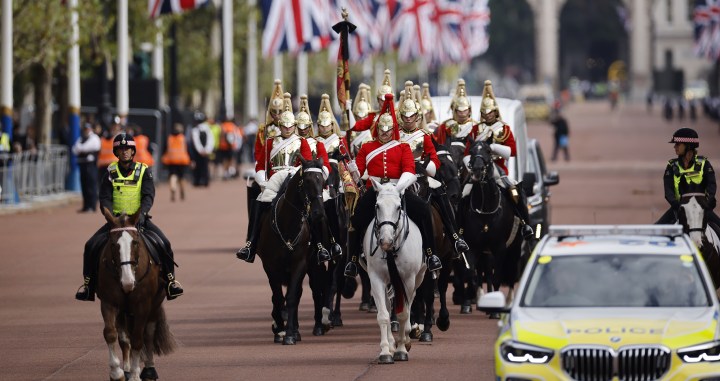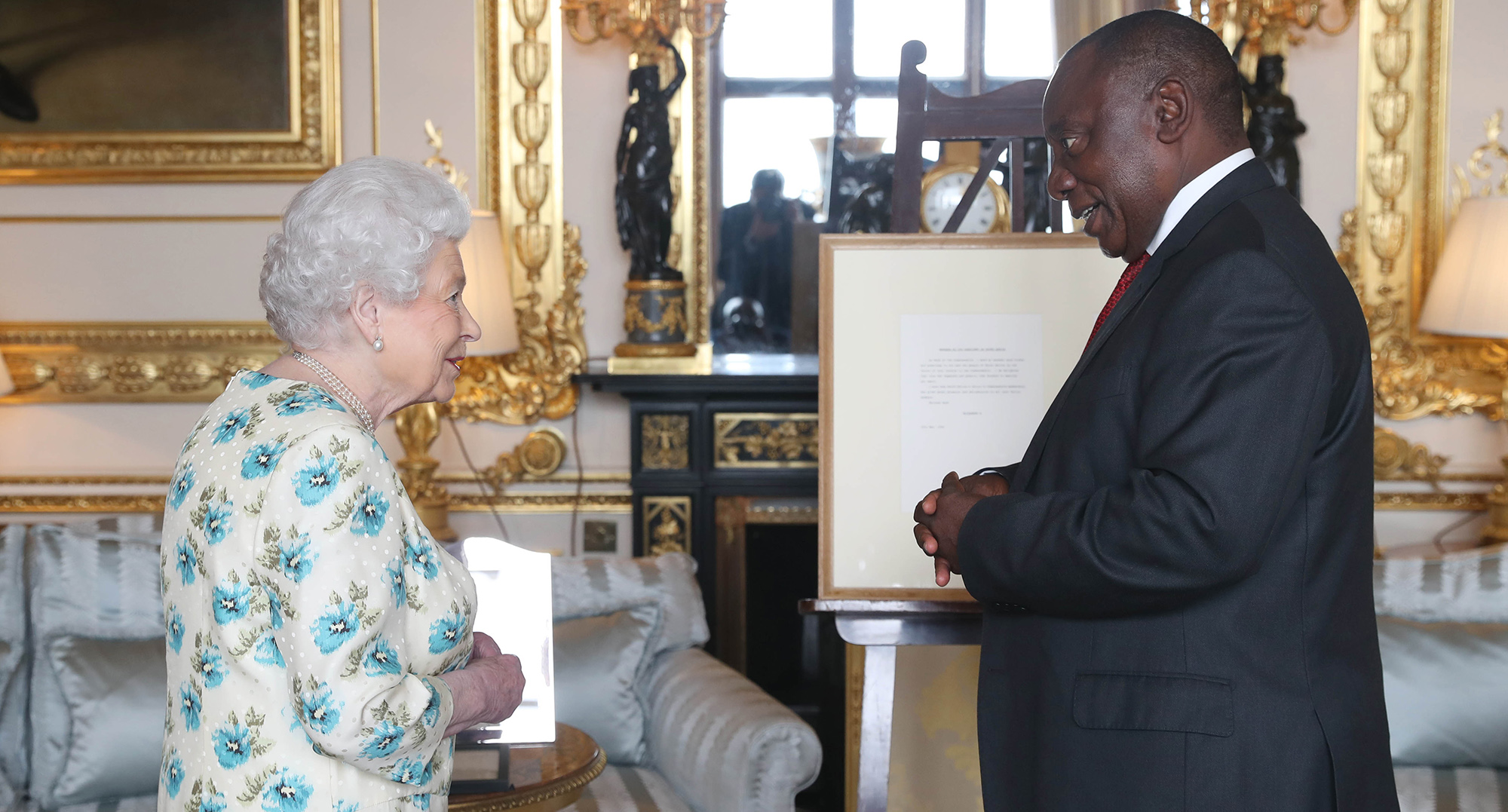DARK STAINS OF HISTORY
UK welcomes open debate about its colonial past, says High Commissioner to SA

Antony Phillipson was responding to the debate Queen Elizabeth’s death has provoked about her legacy in South Africa, as in other former colonies, with some commentators seeing her as a reminder of Britain’s colonial past.
Britain welcomes healthy, open discussion about some of the “dark stains” of its colonial past, including slavery, says the country’s High Commissioner to South Africa, Antony Phillipson.
Phillipson told journalists at a briefing that this was also the view of King Charles III, who became monarch after the death of his mother, Queen Elizabeth II, last Thursday.
Phillipson was responding to the debate the queen’s death has provoked about her legacy in South Africa, as in other former colonies, with some commentators seeing her as a reminder of Britain’s colonial past.
Phillipson said the High Commission had followed the discussion, which it had found “very interesting. There’ve been a variety of sentiments. But a considerable amount of warmth and positive sentiment as well.”
He noted that King Charles III had commented on this himself in his opening address to the Commonwealth summit in Rwanda in June, “where he talked about the need to recognise our past and our shared histories, both the positive and the less positive”.
“But then to focus on the future of our relationships, creating opportunity, security and prosperity for people across the Commonwealth.
“I was very struck by his speech when Barbados became a republic, he talked very directly about the dark stain left on our histories by slavery and what our understanding of that means for our relationships in a modern world,” Phillipson added.
Read Daily Maverick’s coverage of the death of Queen Elizabeth II
In November last year, as Prince Charles, he attended the ceremony in the Caribbean island state of Barbados when it gave up the British monarch as its head of state and became a republic.
In his speech, Prince Charles acknowledged the “appalling atrocity of slavery” that Barbados had suffered as a hub for the transatlantic slave trade for more than 200 years.
The departure of Barbados left 14 other “realms” — apart from the UK — that still recognise the British monarch as their head of state. But others are also considering becoming republics, especially now that Queen Elizabeth II is gone.
Phillipson noted that in Barbados, Prince Charles had said each country’s constitutional make-up, whether republic or monarchy, was a matter for each to decide. Charles had understood that “arrangements like these can change calmly and without rancour”.
Phillipson added that although the queen’s death had reignited these discussions about the past, they had already begun before that.
“And it’s also important that we reflect on that when we are thinking about our UK relationship with other countries. As the High Commission in South Africa, we have always wanted to be very conscious of how people perceive the past relationship between South Africa and the UK as we go about building bonds for the future.
“We can’t change history, but think we can recognise how it impacts on the future and how people react to it. And that’s the context in which we are building those partnerships for the future.”
He said in his discussions in South Africa during his year in this post, he had concluded that it was “important to understand the shared aspects of our history, to understand the issues that are seen as staining that history”.
“And as we think about what we should do together, that is the context in which we have those discussions with each other about how we can deliver a more secure and prosperous future for the UK and SA working together.”
Phillipson said he was not aware of any discussions taking place in South Africa about the need for the UK to pay reparations in this country for colonisation — as the UK had paid in 2013 to more than 5,228 Kenyans who suffered torture and abuse during the Mau Mau uprising against the colonial government.
Visit Daily Maverick’s home page for more news, analysis and investigations
No major changes foreseen
The High Commissioner said that despite the “remarkable coincidence” of the UK getting a new monarch and a new Prime Minister — Liz Truss — almost simultaneously, he did not foresee any major changes in Britain’s relationship with South Africa or Africa.

Queen Elizabeth II shows South African President Cyril Ramaphosa letters between her and Nelson Mandela regarding South Africa returning to the Commonwealth during an audience at Windsor Castle on 17 April 2018 in Berkshire, England. (Photo: Steve Parsons / Getty Images)
“I think there’s going to be a considerable amount of continuity,” he said. He was certain that King Charles would maintain Queen Elizabeth’s commitment to the strong bond with South Africa, both directly and through the 54-member Commonwealth.
He noted that the king had said he believed the Commonwealth, founded on common values such as democracy, was an important forum for engagement by its members. He noted that King Charles had taken over as head of the Commonwealth, as agreed by its leaders in 2018.
The fact that new members were joining — like Rwanda — which had no historical connection with Britain, showed it was still seen “as an attractive, forward-facing, progressive organisation”.
Phillipson said he did not think the passing of the prime ministership from Boris Johnson to Truss would greatly affect UK relations with South Africa either, especially as they were both from the Conservative Party, which would continue to pursue its manifesto
“I think we will continue to see an important prioritisation of the relationship with South Africa bilaterally, through the G20, and I’m sure if future G7 chairs will continue to invite South African presidents [to the G7 summits], that will be another opportunity.
“The issues we’ve been working with South Africa on, around inclusive economic growth, the commitment to delivering on the Just Energy Transition Partnership and indeed working together to deal with the consequences of Covid, I think those will all continue.”
Through the Just Energy Transition Partnership, the UK, US, European Union, Germany and France have pledged $8.5-billion to South Africa to help it to transition from its huge dependence on coal-fired energy to renewables, while taking care of the interests of those who will be affected, such as coal miners.
Phillipson noted that King Charles had always been committed to preserving the environment and would probably continue that commitment, though in different ways, as he had said he would now have much broader responsibilities.
He noted that the king had also said that he was passing on some of his responsibilities as Prince of Wales to the next generation, including the next Prince of Wales, his son William.
Phillipson said he didn’t know if President Cyril Ramaphosa would have to take a bus — along with other world leaders — to attend Queen Elizabeth’s funeral on Monday.
But he did say it would be an incredible logistical challenge to host what will probably be the largest gathering of world leaders since Nelson Mandela’s funeral in 2013. DM




















We can’t change history, but we can recognise the wisdom of approaching history as a rational science and not a fundamentalist religion. Our individual subjective prejudices are unavoidable, as are the pitfalls of judging the deeds and misdeeds of past eras on today’s moral standards.
It behoves us to acknowledge past injustices but also to avoid giving in to our desire for vengeance and instead give absolute primacy to the betterment of the future generations, even if it comes at the expense of our own generation. Our prejudices, whether born of pride, malice or ignorance, should never be passed on to our children. To do so would be to commit the grievous error of keeping the future generations mired in the past, closing off their minds to the possibilities of their own future.